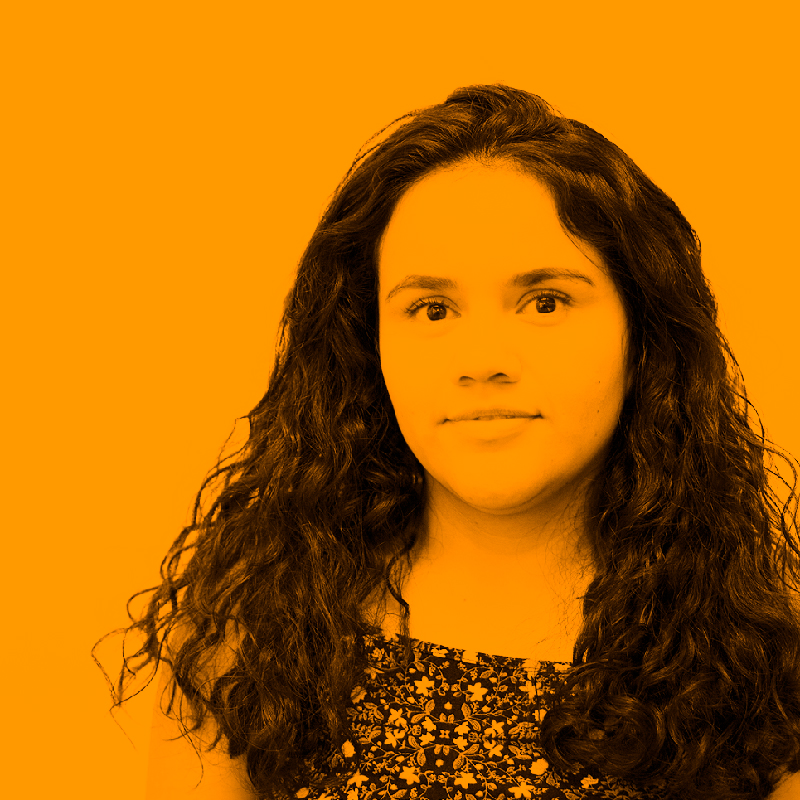Giving a talk in the tech world as junior software developers is a scary task! We might think that we have nothing to say that hasn’t already been said, or that our experience is somehow invalid because we are juniors. However, since we started in this new world, our colleagues have repeatedly told us that we all have something to tell, that we need to get over our fear and throw ourselves into participating in a tech event. We did it. We not only shared our knowledge and experiences, we also helped give visibility to women in tech; hopefully encouraging more of us to have the confidence to give a talk, or to spark interest in our field. This was a goal that we’d wanted to achieve since we began as developers; AdalaberFest was our opportunity and we took it.
Adalaberfest is an event created by and for Adalabers (women who have completed the Adalab intensive front-end course). It’s open to the whole tech community and the main purpose of the event is to provide Adalabers with a safe space to give their first tech talks; motivating them to give more talks at other events in the future. The event also aims to contribute to diversity within tech conferences and to show the developer community that Adalabers (and women in general) have a lot to offer it. Adalaberfest 2021 included five talks on a variety of subjects - from personal experiences to live coding - whose speakers were supported by mentors volunteering their free time to help out.
The tech sector is primarily male-dominated. Although many women have broken barriers and pushed limitations, women still occupy limited spaces in the tech world. According to data from the European Commission, only 29 out of 1,000 female graduates have a degree in computing, and only 4 of them go on to work in the technology sector. This is alarming as technology is shaping our present and our future. If there are not enough women contributing to the development of new and existing technologies, they will only respond to the needs of men. For that reason, there must be diversity in all aspects; ensuring that technology products are inclusive.
Even now, there are far more men participating in tech events than women despite the growing number of women working in tech every year. We should give more visibility to women in the computing industry - to stand up and show everyone that we are here! The more visibility women have in this sector, the more we will challenge gender stereotypes within it. When this happens, not only will people in tech be more open to diversity, people from more diverse backgrounds will want to apply. We want girls to be encouraged to study science and technology and not be discouraged because of gender biases. The more women give talks, the more it’s normalised within the community and the more we pave the way for future generations of women in technology.
About the talks
…but I’m not a software engineer! Or am I?
Speaker: Megan Edwards
This topic is important to me. When I first started my job, I didn’t feel like an engineer and so I wanted to share my own experience of how I overcame that doubt. It was my first job in a new career, after only 3 months of an intensive programming course. Also, my course only covered front-end topics; I felt like I couldn’t compete with computer science graduates. However, in the last year and a half I’ve learned that although those graduates may have an advantage in terms of technical knowledge, we (Adalabers) more than make up for it with our passion, commitment and ability to learn! It isn’t necessary to have a degree in computer science to work as a software engineer. I hoped to encourage more women (or just people in general) to try new things and understand that they bring their own set of skills and experience with them to whatever they do.
Event Storming: a collective learning dynamic. What is wanted from the application and what will it be used for?
Speaker: Libertad Pozos
At Osoco I have had the opportunity to work on different projects, both back and front end, and one of the things I have learned that has nothing to do with code and is fundamental to development is the importance of understanding what is being done and why. As programmers, we are often given specifications with information that is jumbled, incomplete or difficult to understand. That’s why I decided to give a talk on Event Storming, a collective learning workshop where we explore the domain, and as a consequence understand the client’s business, and propose appropriate solutions. I also shared my experience doing Event Storming and how this tool makes our work easier, because software development is much less complicated if you understand the problem domain.
Conclusion
Giving a talk in a tech event takes a lot of planning, preparation and hard work. However, we both enjoyed the experience and are proud to contribute to diversity in the tech sector. We are here thanks to all the women who came before us and fought hard to break gender barriers. OSOCO recently created a website celebrating some of these incredible women: A Hombros de Gigantas. Our hope is that we will inspire more women to join the world of programming and continue this fight towards equality.


